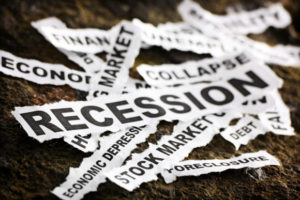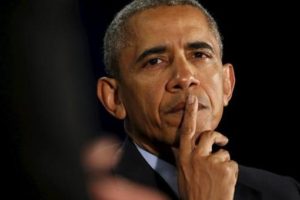November 2 proved to exceed the predictions of most pollsters, strategists, and pundits when American voters took Democrats to the “woodshed” for their mismanagement of the economy and the people’s treasury. Republicans won over 60 seats in the House and picked up a handful of new seats in the Senate. Certainly the tidal wave of Tea Party support this year was a powerful driver in the election, but ultimately, it was Independents and their disgust with a slow economy that gave the GOP the greatest victory during mid-term elections in the last 50 years. Democrats attracted votes from over 50% of Independents in 2008, but now they are largely breaking towards the GOP and it is largely understood Independent votes can swing elections. Appearing chastised and defeated at a press conference earlier today, Mr. Obama told the American people – “I feel bad”.
I think most political experts would agree that the outcome of the mid-term elections was largely a referendum against Obama and how he has governed the country during the first two years of his administration. Rightfully, Obama admitted that he feels a sense of sorrow for all those in his party that were fired on November 2, but he still appeared to be disconnected from the reality that his political agenda was the primary cause. Mr. Obama defended the choices that he has made in the last two years while stating that he would be more open to compromise on issues moving forward. Of course, it is too early to tell if Obama will move to the center as Clinton did in 1994, but I think the majority of voters would like Obama to focus on building consensus and not ramming through legislation.
Tea Party activists have not only changed the political landscape in Washington, but they have fundamentally transformed the Republican Party. Taking a page from Mr. Obama’s 2008 campaign playbook, Tea Party activists have energized the GOP base at the grassroots level, which has not been done since 2000 during the Bush Campaign, and 1984 during Regan’s bid for reelection. However, Reagan and Bush utilized social conservatives to dominate the grassroots of the party. Today, the Tea Party controls the grassroots, and they are fiscal conservatives and free-market supporters. Social issues such as abortion, guns, and gay marriage are not on the Tea Party agenda.
I am not arguing that Tea Party activists are not social conservatives, but they have made a conscience decision not to allow social issues to dominate their agenda. Reducing federal government intrusion, promoting economic liberty and the need for fiscal austerity measures are the issues that are energizing the base. The Tea Party has effectively attracted Independents, Democrats, Libertarians, and Republicans to unite against Obama’s agenda. The direct impact from the creation of this “big tent” has led to major victories in battleground states such as Ohio, Wisconsin, Pennsylvania, New York, and many more states that were once considered “blue”.
Democrats in Washington are not the only ones with a “red backside” after November 2, but it is also worth noting that the Republicans managed to capture 10 Governor Mansions and now they control 30 out of 50 states. In addition, the GOP turned 19 state legislatures from blue to red, in North Carolina the Republicans are in control of the entire General Assembly for the first time in 112 years. The sea wave of change across the country will have real consequences when voting districts are redrawn next year. Not to mention, the GOP will have an extensive infrastructure in a number of battleground states when the 2012 election cycle comes around.
One other dynamic emerged November 2 and that was the lack of support from young and minority voters. The message of “hope” and “change” galvanized them to help Obama capture the White House, but in the latest election they decided to stay home. The number of votes casted for Democrats from the group was down over 10% respectively. Another more important fact is that older and white voters are also deserting Obama and his party, which means the probability that Republicans can hold Obama to one-term, has increased dramatically.
Most Americans are now wondering what will be the direct impact of the election. Will the Republicans repeal and replace ObamaCare? Will they cut spending and how? Will they compromise to prevent gridlock? Many questions are being tossed around on the cable news shows, but it is far too early to see the implications of the shift in legislative power.
Repealing ObamaCare will be a large challenge since the Democrats still control the Senate and Mr. Obama has a veto pen that he is itching to use. More viable options might be to focus on selective provisions and then work to make bi-partisan improvements. Regaining control of the federal government’s budget is top of mind for all voters and they will watch the Republicans closely to see if they “walk their talk”. Congress will have to get serious about spending cuts, which mean entitlement programs such as Social Security, Medicare, and Medicaid, which is increasingly eating up most of the resources, must be reformed. All options should be on the table – increasing the retirement age, restructuring benefits, and any other uncomfortable decisions that will allow us to rein in spending. Yes, even departments that are typically considered “untouchable” such as the Department of Education, Defense, and others must be closely examined to create greater effectiveness and efficiency. Republicans will also have to prescribe a dose of medicine that most voters do not want – tax increases. The dirty secret is that Congress cannot balance the budget without movement on both options – spending and taxation.
Concerns about job creation and the domestic economy are on the minds of liberal and conservative voters. Unfortunately, the stagnation in the American economy will not be solved by one election. We are recovering from a massive lockup in our financial system that was driven by too much debt and easy access to credit. Companies and individuals are still repairing balance sheets. Job creation will not restart until consumer demand picks up and is sustainable. Unemployment appears that it will remain uncomfortably high through 2011 as municipal and state governments deal with looming budget deficits that require tough reductions in government spending. Leaders in Washington should be honest with America and explain to them that our economy will muddle along for the next few years before entering another significant expansionary cycle and bring the jobless rate down to more a comfortable range.
Republicans are riding a wave of optimism and they rightfully feel that voters are sending them to Washington with a mandate to “change the course”. I hope they fulfill the enormous expectations that voters have placed upon them. Americans are in great pain and many feel a deep sense of hopelessness. The majority of America has no feeling of financial or job security, and many are suffering from the loss of homes, cars, and confidence. There have been no other times since the “Great Depression” that our country desired sincere leadership in the midst of economic crisis. Americans do not care about the petty issues that separate lawmakers; they just want leadership and solutions. Voters want leaders that will place their needs before party interests, special interests, and more importantly self-interest. The founding fathers were brilliant thinkers and created a government that allows for a peaceful revolution every two years. I hope the GOP will exceed the desire of voters, but if not, then they may be the party that receives the next “shellacking”.




